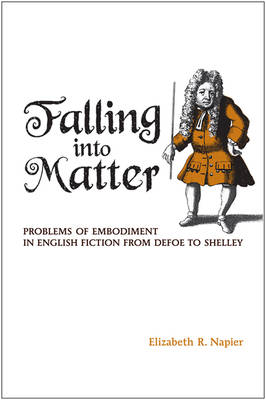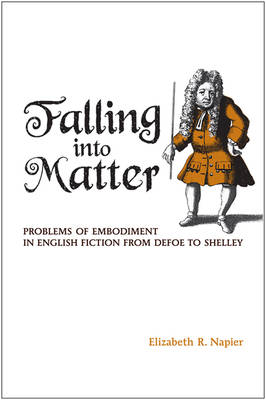
- Afhalen na 1 uur in een winkel met voorraad
- Gratis thuislevering in België vanaf € 30
- Ruim aanbod met 7 miljoen producten
- Afhalen na 1 uur in een winkel met voorraad
- Gratis thuislevering in België vanaf € 30
- Ruim aanbod met 7 miljoen producten
Zoeken
Falling Into Matter
Problems of Embodiment in English Fiction from Defoe to Shelley
Elizabeth R Napier
Hardcover | Engels
€ 78,45
+ 156 punten
Omschrijving
Falling into Matter examines the complex role of the body in the development of the English novel in the eighteenth century. Elizabeth R. Napier argues that despite an increasing emphasis on the need to present ideas in corporeal terms, early fiction writers continued to register spiritual and moral reservations about the centrality of the body to human and imaginative experience.
Drawing on six works of early English fiction -- Daniel Defoe's Robinson Crusoe, Jonathan Swift's Gulliver's Travels, Samuel Richardson's Clarissa, Henry Fielding's Tom Jones, Elizabeth Inchbald's A Simple Story, and Mary Shelley's Frankenstein - Napier examines how authors grappled with technical and philosophical issues of the body, questioning its capacity for moral action, its relationship to individual freedom and dignity, and its role in the creation of art. Falling into Matter charts the course of the early novel as its authors engaged formally, stylistically, and thematically with the increasingly insistent role of the body in the new genre.Specificaties
Betrokkenen
- Auteur(s):
- Uitgeverij:
Inhoud
- Aantal bladzijden:
- 304
- Taal:
- Engels
Eigenschappen
- Productcode (EAN):
- 9781442641983
- Verschijningsdatum:
- 8/03/2012
- Uitvoering:
- Hardcover
- Formaat:
- Genaaid
- Afmetingen:
- 147 mm x 231 mm
- Gewicht:
- 544 g

Alleen bij Standaard Boekhandel
+ 156 punten op je klantenkaart van Standaard Boekhandel
Beoordelingen
We publiceren alleen reviews die voldoen aan de voorwaarden voor reviews. Bekijk onze voorwaarden voor reviews.











